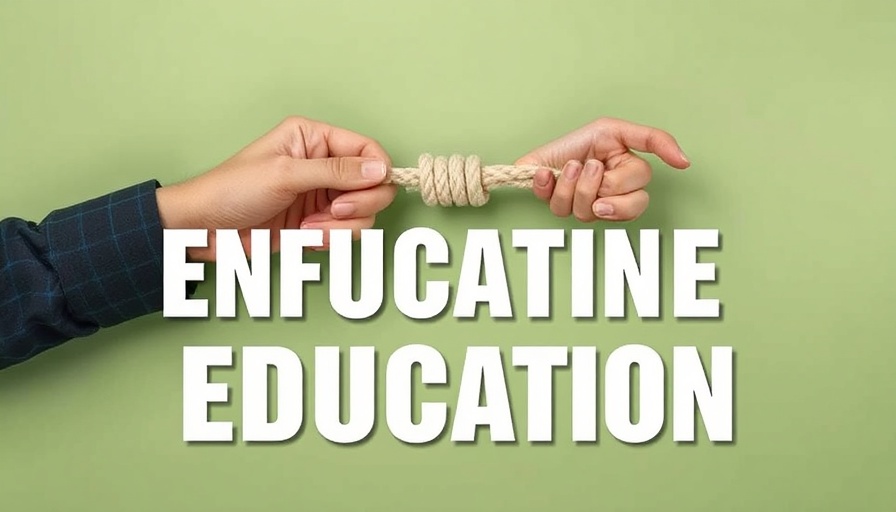
Understanding Codependency in Neurodiverse Relationships
In today's world, recognizing the dynamics of relationships is crucial, especially in neurodiverse partnerships where unique challenges can arise. Codependency, often seen as an unhealthy reliance on one another, can be particularly pronounced in these contexts. For example, a partner with ADHD may lean heavily on their neurotypical partner for organization, whereas the neurotypical partner may find themselves feeling overwhelmed by their responsibilities. Understanding these emotional and behavioral patterns can significantly enhance communication and foster healthier interactions.
The Signs of Codependency: Are You Experiencing Them?
Identifying codependency is essential in creating pathways to healthier relationships. In neurodiverse relationships, here are some signs that might ring a bell:
- Overdependence on a Partner: This can manifest as one partner continually seeking validation or assistance, which can happen especially when one partner struggles with executive functioning tasks.
- Emotional Enmeshment: Often, one partner may feel responsible for the other's happiness, leading to an unhealthy emotional attachment that can suffocate personal growth.
- Lack of Individual Identity: Partners might lose themselves in the relationship, neglecting personal interests or friendships, which is compounded by different neurodiverse needs.
- Difficulty Communicating Needs: Many individuals in neurodiverse relationships may not articulate their needs effectively, leading to miscommunication and frustration.
- Avoidance of Conflict: To maintain the relationship, partners may sidestep needed discussions, allowing unresolved issues to fester.
- Resentment: Unexpressed frustrations can build over time, leading to feelings of blame and anger toward each other.
Why This Matters: Codependency Affects Well-being
Recognizing codependency is crucial not just for the health of the relationship, but for the mental well-being of both partners. Codependency can lead to anxiety or depression, particularly if one partner feels unacknowledged or overwhelmed. Feelin isolated can deepen feelings of inadequacy and frustration.
Future Insights: Addressing Codependency
Understanding and addressing these signs of codependency is the first step toward nurturing more balanced relationships. Couples can explore therapy options designed for neurodiverse partnerships that emphasize communication strategies and emotional independence. Educational resources tailored for educators, as well as self-help tools, can also support couples in recognizing and addressing detrimental patterns together.
Emotional Perspectives: How It Feels to Navigate Codependency
Imagine being in a relationship where your self-worth is entirely defined by your partner’s validation. It can feel stifling and lead to a loss of confidence. For educators and individuals invested in fostering positive relationships, understanding these dynamics can provide clarity and the motivation needed to foster healthier interactions.
Empowering Change: Steps for Growth
To improve dynamics, both partners can prioritize open communication. Simple check-ins about daily stresses or emotional health can reinforce the bond and ensure both partners feel heard and valued. Create shared goals for emotional independence and personal growth to celebrate individual achievements and contributions.
A Gentle Reminder: It’s Okay to Seek Help!
If you recognize any of these signs in your relationship, remember that support is available. Engaging a therapist familiar with neurodiverse relationships can illuminate patterns that you may not recognize on your own. The skills learned can transform your relationship into a more fulfilling partnership.
As you reflect on these insights into codependency, consider reaching out to peers or professionals who can offer further support or guidance in your journey. Understanding and addressing these challenges may not only enhance your existing relationship, but also empower your overall mental health for the long term.
 Add Row
Add Row  Add
Add 




 Add Row
Add Row  Add
Add 

Write A Comment